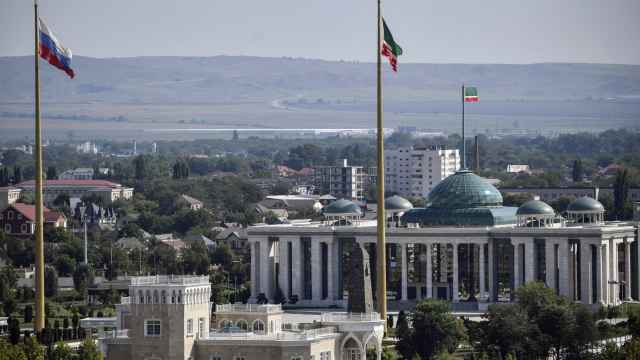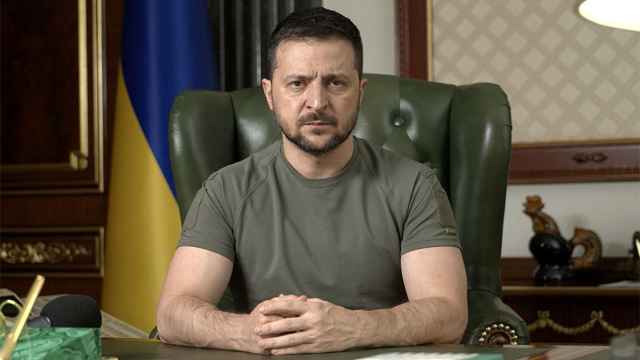I recently bumped into an old acquaintance who, without even bothering to say hello, immediately asked, "Are you going to the next protest rally on Feb. 4?"
"Of course," I replied grimly, and jokingly added: "But only if I put on a suicide bomber's belt and head straight for the stage."
"Thank goodness," she cried, giving me a hug. "I finally found a normal person."
One prominent author recently wrote in a letter: "Back in 1917, the same well-to-do people in beaver-skin coats went out walking with red ribbons in their buttonholes. They all ended up in Kolyma in their beaver-skin coats. I am not gloating, but history may repeat itself when the people who are really suffering will come out on the streets."
Thus, on Dec. 19, 2011 — the 105th anniversary of former Soviet leader Leonid Brezhnev's birth — an old friend and I sat around in his kitchen listening to Soviet-era songs, which are still popular today, and cursed former Soviet leader Mikhail Gorbachev for not having falsified the results of the June 1991 election in which Boris Yeltsin was elected president of the Russian Republic of the Soviet Union with 57 percent of the vote.
"Why," you might ask, "do so many successful and independent-minded people who largely did not even vote for United Russia are so fearful of a tiny percent of the population that attended protest rallies?"
The answer is that the current mix of romantic intelligentsia, cynical opportunists and misfits is no different than the motley group behind the democracy rallies of 1990-91. They found an audience among Muscovites who hungered for free elections and hated Gorbachev and the Communist Party, which was also viewed as "the party of crooks and thieves" of that time. Gorbachev and the Communists were disliked even more than today's protesters dislike Prime Minister Vladimir Putin and United Russia.
And they got what they were after. In a free election, the people gave the presidency to Yeltsin, who, in the worst Bolshevik tradition, promised them that he would strip the ruling officials of their special benefits and privileges and hand them to the common people. Yeltsin also inspired hope that he would use an iron hand to end Gorbachev's period of chaos that resulted from his democratic reforms.
But Yeltsin fooled everybody. He allowed a small number of well-connected Russians to get very wealthy while leaving tens of millions to barely survive. Rephrasing British Prime Minister Winston Churchill, communism may have been a terrible system, but all of the others, including Yeltsin's "democracy," turned out to be much worse.
After having been robbed and plundered for so long, I have no doubt that the Russian people would choose a real Bolshevik for president if given another chance at free elections.
As a counterbalance, I am creating a new party – the Stagnation Party. Our slogan: "Change Is Bad!" Our ideology: The worst government is better than the best people.
I am certain that everyone who was satisfied with the results of the recent parliamentary elections and eventually today's protesters will become active supporters of our party. We will carry the 2018 elections and will rule long and successfully.
Alexei Pankin is the editor of WAN-IFRA-GIPP Magazine for publishing business professionals.
A Message from The Moscow Times:
Dear readers,
We are facing unprecedented challenges. Russia's Prosecutor General's Office has designated The Moscow Times as an "undesirable" organization, criminalizing our work and putting our staff at risk of prosecution. This follows our earlier unjust labeling as a "foreign agent."
These actions are direct attempts to silence independent journalism in Russia. The authorities claim our work "discredits the decisions of the Russian leadership." We see things differently: we strive to provide accurate, unbiased reporting on Russia.
We, the journalists of The Moscow Times, refuse to be silenced. But to continue our work, we need your help.
Your support, no matter how small, makes a world of difference. If you can, please support us monthly starting from just $2. It's quick to set up, and every contribution makes a significant impact.
By supporting The Moscow Times, you're defending open, independent journalism in the face of repression. Thank you for standing with us.
Remind me later.





